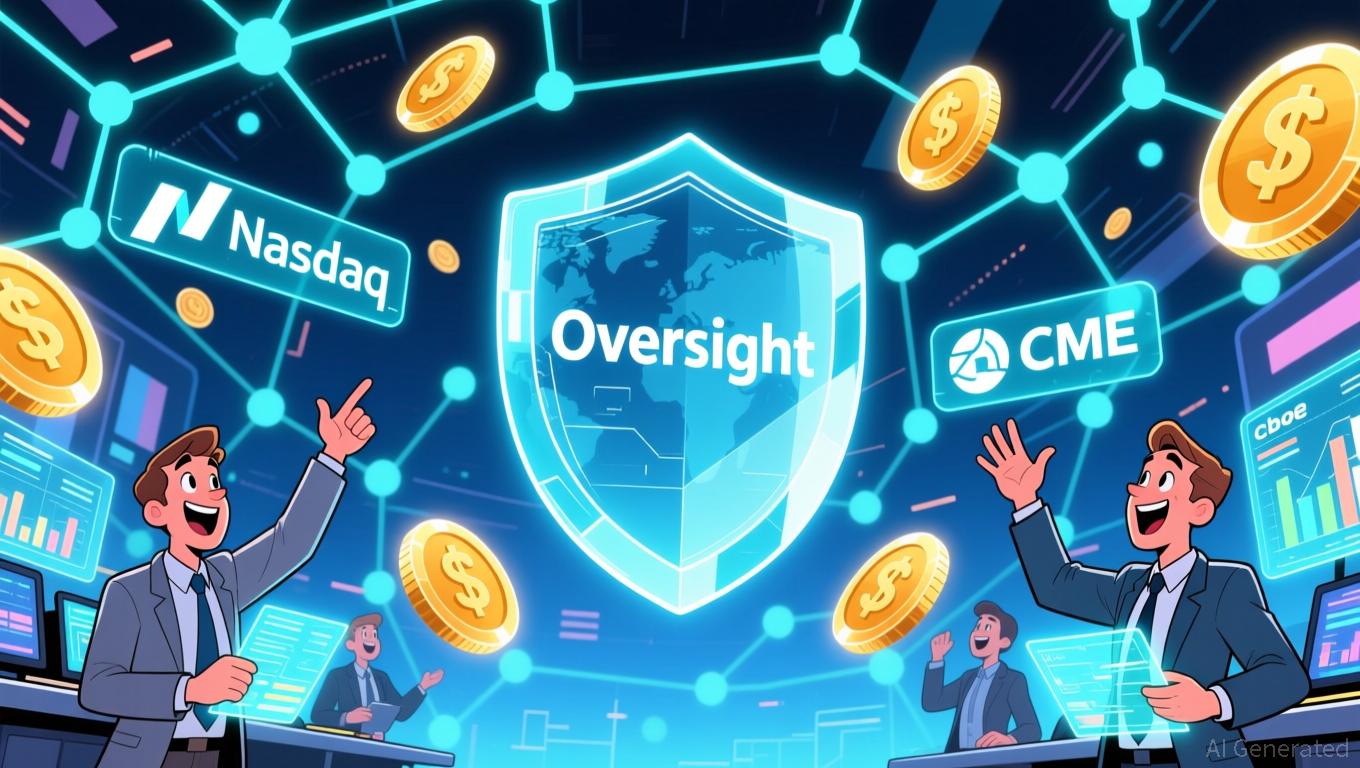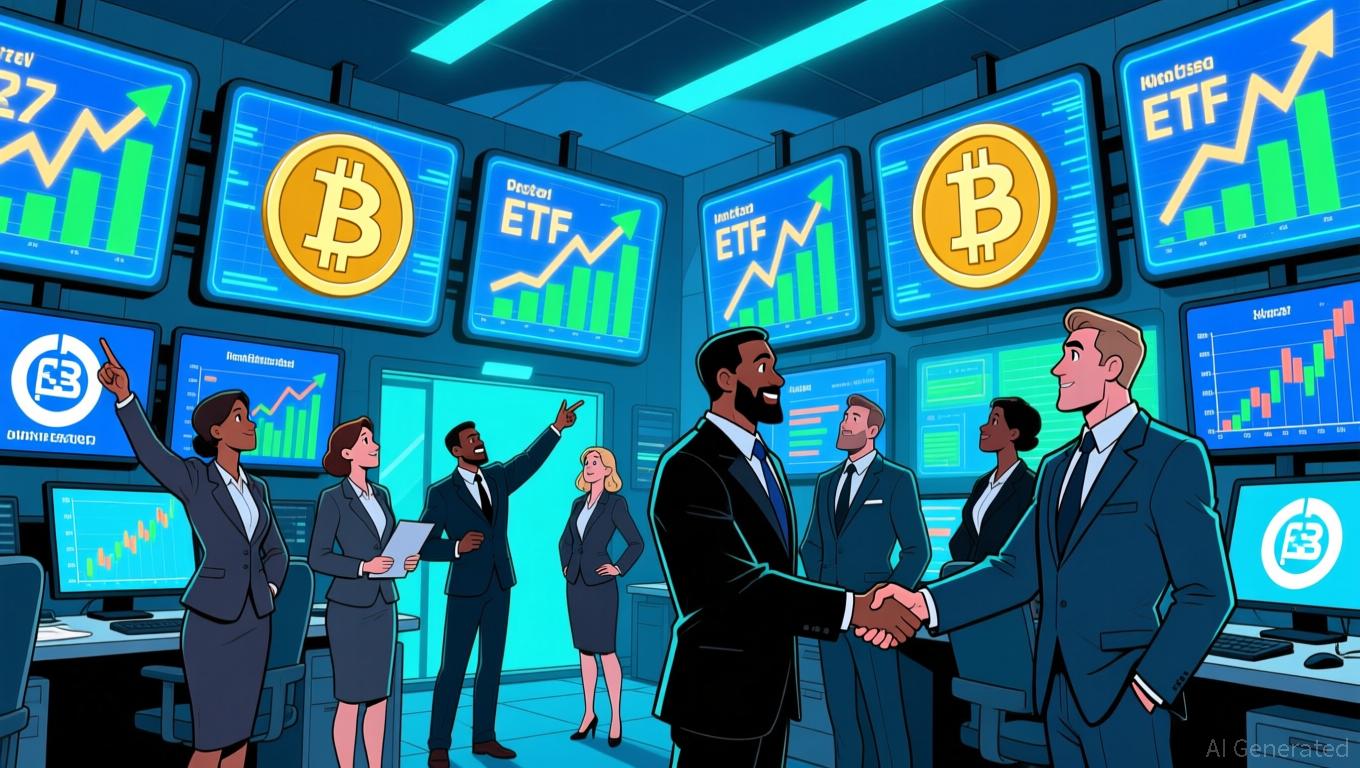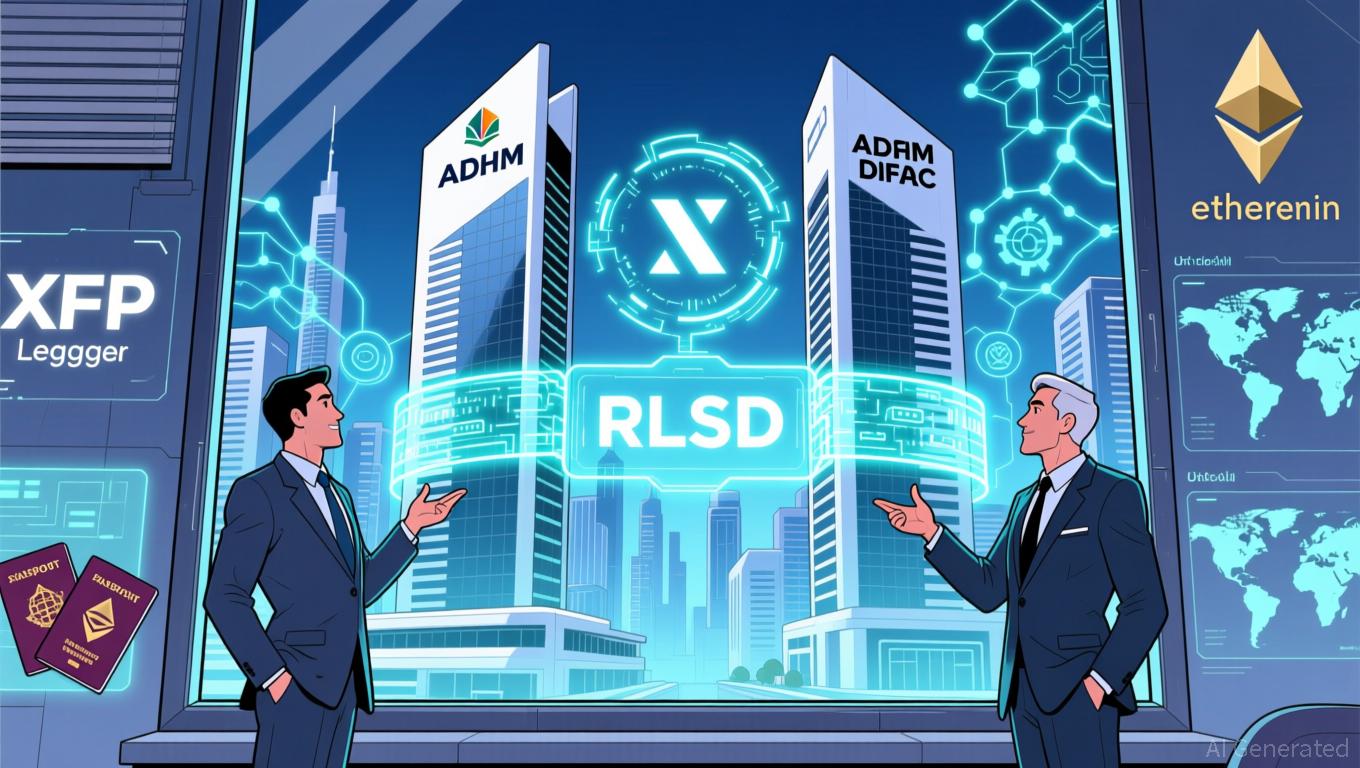Global Exchanges Caution: Excluding Crypto May Undermine Market Fairness and Integrity
- Global exchanges urge SEC to reject broad crypto exemptions for tokenized stocks to prevent market integrity risks and unfair competition. - SEC considers sandbox framework for crypto pilots, but warned by WFE and SIFMA against creating parallel markets and eroding safeguards. - SIFMA highlights crypto market collapses, stressing that U.S. markets’ strength lies in regulated depth and liquidity, not speed. - Robinhood and Coinbase advance tokenized stock initiatives despite resistance from traditional ex
The U.S. Securities and Exchange Commission (SEC) is under increasing scrutiny from international financial organizations, which are urging the agency not to provide sweeping regulatory waivers to crypto platforms dealing in tokenized stocks, amid growing worries about market fairness and investor safety. On November 21, the World Federation of Exchanges (WFE)—which counts major exchanges such as Nasdaq, Cboe, and CME Group among its members—sent a letter to the SEC, pressing the agency to turn down requests for "
Tokenized stocks, which use blockchain to represent fractional shares of traditional equities, have sparked both enthusiasm and skepticism. Supporters believe these assets could make trading more efficient and accessible, but detractors point to dangers like fragmented markets and unstable pricing. The WFE pointed out that tokenized stocks are often "
SEC Chair Paul Atkins has indicated a willingness to explore a "sandbox" approach, which would grant temporary exemptions for crypto firms to test tokenized offerings under regulatory oversight
This ongoing debate highlights the fundamental conflict between fostering innovation and upholding regulatory standards. While the SEC’s Crypto Task Force considers custom exemptions, established exchanges and advocacy groups maintain that essential values—such as equal access, openness, and investor safeguards—must remain intact. For example, Robinhood’s move into tokenized stocks through European collaborations and Coinbase’s pending SEC filings demonstrate the rising demand for blockchain-based trading

The SEC’s forthcoming decisions will be pivotal for the evolution of tokenized assets. Should the agency move forward with its sandbox initiative, it will need to carefully balance encouraging innovation with maintaining market integrity. Detractors warn that even well-meaning exemptions could undermine the credibility of U.S. capital markets, which have long relied on robust regulatory protections to inspire investor trust. As SIFMA emphasized, "The strength of U.S. markets lies in their depth, liquidity, and reliability—qualities that cannot be sacrificed for the sake of speed or convenience".
Disclaimer: The content of this article solely reflects the author's opinion and does not represent the platform in any capacity. This article is not intended to serve as a reference for making investment decisions.
You may also like
XRP News Today: With Tether and USDC under examination, RLUSD from the UAE stands out as a regulatory-compliant stablecoin option.
- Ripple's RLUSD stablecoin received ADGM approval as a regulated fiat-referenced token in Abu Dhabi, enabling institutional use in payments and treasury management. - Pegged 1:1 to the USD with NYDFS oversight, RLUSD ($1.2B market cap) offers compliance-driven alternatives to USDT/USDC amid global regulatory scrutiny. - UAE's ADGM-DIFC regulatory framework positions the region as a crypto innovation hub, with Ripple expanding partnerships through Zand Bank and Mamo fintech . - The approval aligns with UAE

ZK Atlas Enhancement: Driving Institutional Embrace Amid the Blockchain Scalability Competition
- ZKsync's Atlas Upgrade solves throughput bottlenecks with Airbender RISC-V zkVM, enabling 15,000+ TPS at $0.0001 per transaction. - Modular ZKsync OS reduces gas fees by 70% since 2023, enabling real-time financial applications while maintaining regulatory compliance. - Deutsche Bank and UBS test ZKsync for asset tokenization, highlighting its institutional appeal through privacy-preserving ZK features and sub-second finality. - Upcoming Fusaka upgrade aims to push TPS to 30,000 by December 2025, but reg

Bitcoin Updates: Bitcoin Receives Major-Cap Status as Nasdaq Increases Options Limits Fourfold
- Nasdaq seeks SEC approval to quadruple IBIT options limits from 250,000 to 1 million contracts, aligning Bitcoin ETF with high-liquidity assets like EEM and GLD . - The proposal cites IBIT's $86.2B market cap, 44.6M daily shares traded, and industry support for addressing institutional demand amid Bitcoin's rapid financial instrument maturation. - Experts argue higher limits will reduce spreads, enable sophisticated hedging, and treat Bitcoin as a "mega-cap asset," while Nasdaq also seeks unlimited FLEX

XRP Update: ADGM's Green Light for RLUSD Strengthens UAE's Pursuit of Digital Financial Growth
- Ripple's RLUSD stablecoin secured ADGM approval as an institutional fiat-backed token in November 2025, following DIFC's June 2025 greenlight. - The UAE's dual regulatory endorsements position RLUSD for cross-border settlements, with $1.2B market cap driven by institutional demand for collateral and treasury tools. - ADGM's stringent oversight framework requires full reserve backing and AML compliance, aligning RLUSD with global standards under NYDFS charter . - XRP prices surged 24% in late 2025 amid $1
